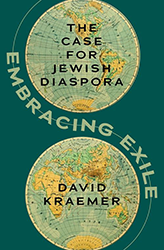To the average synagogue-goer, the privileges still accorded to Priests and Levites seem a quaint reminder of their once awesome responsibilities. Certainly, the importance accorded to the Tribe of Levi in the Torah is something that may have mattered thousands of years ago, and perhaps, to the messianically-inclined, to a distant future as well. In the present, however, it should hold almost no interest. In her recent study, Martha Himmelfarb ponders the dichotomy of ancestry and merit and seeks to determine the reasons and meaning behind this underlying tension.
Most interpret the biblical verse calling all Israel a Kingdom of Priests as the ultimate democratic claim, portraying every Jew as an equal, in both honor and responsibility. No Priest, after all, is necessary any longer to function as an intercessor in Heaven on behalf of Earth. Additionally, one would imagine that as the importance of the Rabbis grew after the destruction of the Temple, the impetus to show honor to the Priestly heritage would decline. The Rabbis, by their elevation of Torah study as the sine qua non of Jewish life, represent the ultimate aristocracy of merit versus the ancient one of mere descent from Aaron and his sons. And yet, we see an intense and ongoing interest in the Talmud and other rabbinical works on the Priest and his duties.
Himmelfarb posits that this seeming discrepancy finds its origins in the tumultuous division between Judaism and Christianity during late antiquity. To completely abandon birth in favor of merit could have been seen as strengthening the Christian claim of redemption through faith, not that of God’s chosen people following His immutable law. A fine entry into a crowded and exciting field of study, A Kingdom of Priests stakes out interesting new ground.





